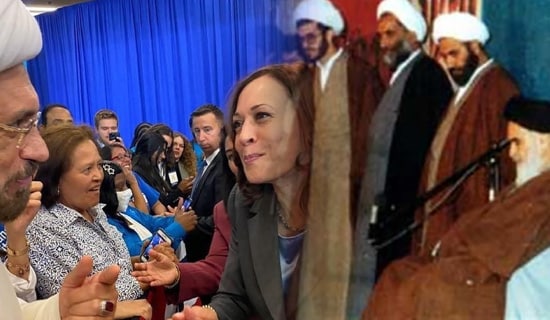This is the fifth installment in a series of reports about the individuals comprising the Standing Committee of the Politburo of the Chinese Communist Party (CCP), Chinese President Xi Jinping's closest advisors and the most powerful men in China.
Zhao Leji, who was initially elected to the sixth-highest ranking position on the Standing Committee in 2017 at the 19th People's National Congress, is the focus of this installment. Between 2017 and 2022, Zhao served as the secretary of the CCP's Central Commission for Discipline Inspection, the CCP's top anti-corruption agency. He was reelected to the Standing Committee at the recent 20th National People's Congress, in October 2022, and now holds the third-highest position on it. He is also now head of the Leading Group that oversees the CCP Central Committee.

Zhao Leji
For the previous reports in this series, see MEMRI Inquiry & Analysis No. 1653 about intellectual Wang Huning, MEMRI Inquiry & Analysis No. 1656 about Li Zhanshu, MEMRI Inquiry & Analysis No. 1658 about Li Keqiang, and MEMRI Inquiry & Analysis No. 1660 about Wang Yang. Note that Li Zhanshu, Li Keqiang, and Wang Yang were removed from the Standing Committee last month, at the 20th National People's Congress.
Biography
Zhao Leji was born in Xining, the capital of the Qinghai province, on March 8, 1957. He became a member of the CCP in 1975. In 1977, he enrolled at Peking University as a gongnongbing ("Worker-Peasant-Soldier") student, accepted due to "class background" rather than academic qualifications. He graduated from the philosophy department in 1980, and went on to earn graduate degrees: in banking from the Graduate School of the Chinese Academy of Social Sciences and in political science from the CCP's Central Party School.
Early in his career, Zhao worked in the Qinghai Province Department of Commerce, and in 1993 was appointed Assistant to the Governor of Qinghai Province and Director of the Provincial Finance Department. The following year, he was appointed Vice Governor of Qinghai Province, and in 1997, he became Deputy Secretary of the Qinghai CCP Provincial Committee and the Secretary of the Xining Municipal CCP Committee. In 1999, he became Acting Governor of Qinghai Province, and in 2000, at the age of 42, he was elected governor of Qinghai Province, becoming the youngest governor in the country.
In 2003, Zhao was promoted to Secretary of the Qinghai Provincial Party Committee. He was the youngest provincial Party Committee secretary in China. In 2004, he was elected chairman of the Standing Committee of the Qinghai Provincial People's Congress.
After working in Qinghai Province for nearly 30 years, Zhao became the secretary of the Shaanxi Provincial Party Committee in 2007, and the following year he was elected chairman of the Standing Committee of the Shaanxi Provincial People's Congress.
In November 2012, at the 18th National People's Congress, Zhao Leji was elected to the CCP Central Committee's Political Bureau, joining the ranks of the CCP's national leadership. He also was elected Secretary of the Central Committee's Secretariat. Five years later, at the 19th National People's Congress, he was promoted to the Politburo's Standing Committee, becoming the sixth most powerful man in China.
As noted above, at the 20th National People's Congress in October 2022, Zhao was re-elected to the Standing Committee and promoted to the third-highest position in China. In the coming year, Zhao Leji is expected to become the Standing Committee's chairman.
Ironically, despite having been the head of the CCP's top anti-corruption agency, Zhao Leji has been mired in several known corruption scandals. He was found guilty of illegally constructing villas in the Qinling Mountains in Shaanxi province, and was implicated in property rights disputes over a coal mine worth hundreds of billions of yuan in Shaanxi province. He was also involved in attempts to retaliate against Chinese Supreme Court judge Wang Linqing. In addition, Zhao has been implicated in corruption cases involving former Shaanxi Party chief Zhao Zhengyong, as well as in a major illegal mining case in Qinghai province.
Factional Affiliation
Zhao Leji is not openly affiliated with either the pro-Xi or the anti-Xi faction, and there is speculation about his alignment with both sides. Some believe that he is loyal to Xi, since they both trace their roots to the Shaanxi province and since Zhao's father, Zhao Ximin, had worked under Xi's father, Xi Zhongxun. It is noteworthy that when he was in Shaanxi province's top leadership, he built a large mausoleum honoring Xi Zhongxun.
On the other hand, Zhao became governor of the Qinhai province – and the youngest governor in China – in 1999, under Jiang Zemin, and he also became a provincial party secretary under Hu Jintao. Due to his young age at the time of his promotion, there has been speculation that this indicates affiliation with Jiang Zemin and Hu Jintao.
In addition, some have speculated that Zhao has ties to the first-generation Communist Youth League ("Tuanpai") faction, since his father had worked with Hu Yaobang, the leader of the first-generation Tuanpai.
It is noteworthy that at the recent 20th National People's Congress, all members of the Politburo's Standing Committee who are known to have belonged to anti-Xi factions were replaced by pro-Xi officials (see MEMRI Inquiry & Analysis No. 1664). Therefore, the fact that Zhao Leji was re-elected to the Committee may indicate that he does not belong to an anti-Xi faction.
Zhao And Xi Jinping
By all appearances, Zhao and Xi have a good personal relationship. As mentioned above, Zhao's and Xi's fathers had been close colleagues, and Zhao had built a mausoleum honoring Xi's father. In addition, Zhao and Xi advanced in the ranks of the CCP at approximately the same pace and are equal in seniority.
Since Zhao is friendly with Xi without openly supporting him, he may be being used by Xi in order to give the Standing Committee an appearance of ideological and factional diversity – which could contribute to the stability of Xi's leadership. Xi also appears to have overlooked the corruption scandals in which Zhao has been involved, and thus has significant leverage over him.
*Chris King is Senior Research Fellow for the MEMRI Chinese Media Studies Project. He was an active participant in the student protests in China in 1989.








